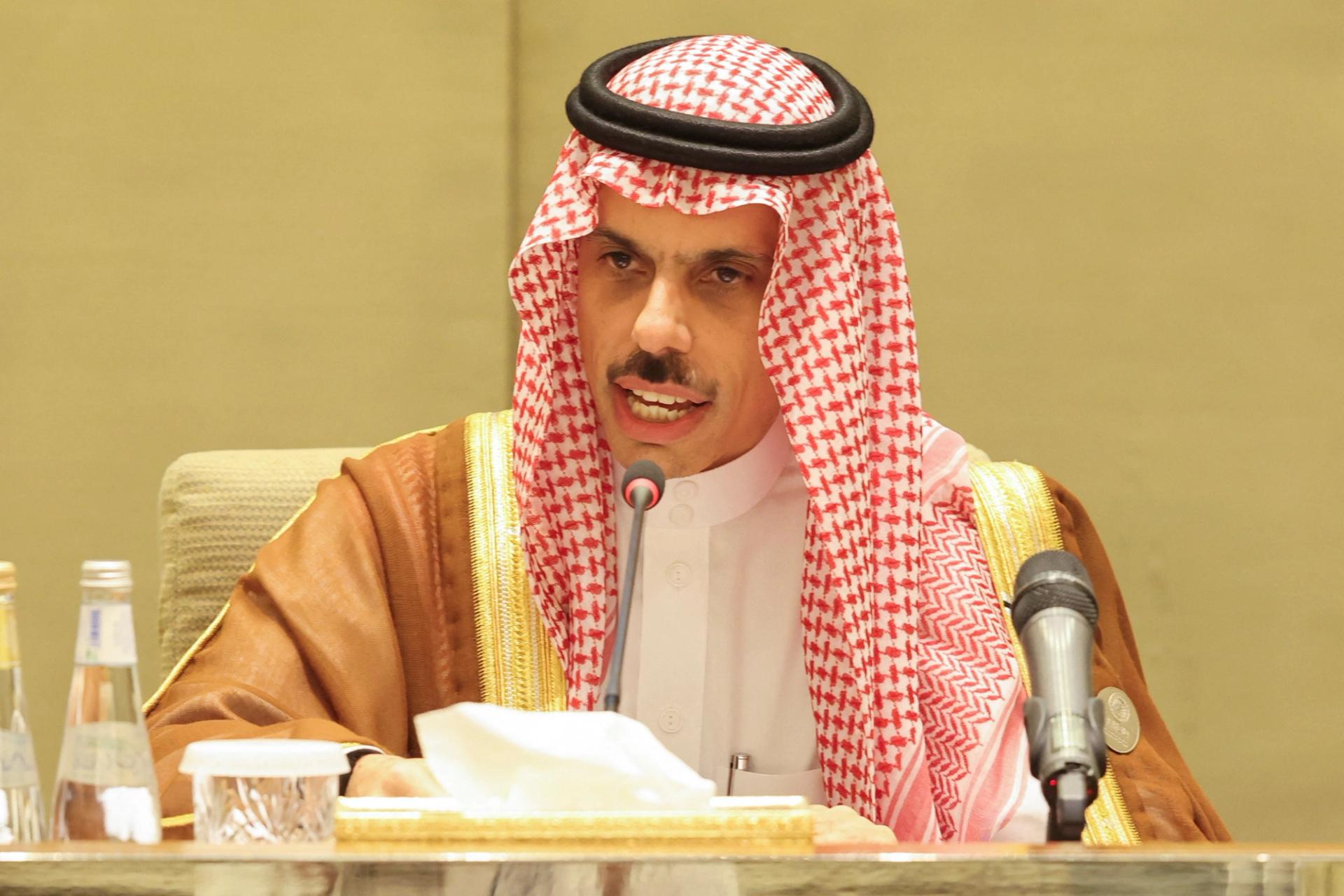The News
Arab and Muslim leaders are turning to China to try and increase pressure on the U.S. and Israel to agree to a formal ceasefire in the Gaza Strip, presenting Beijing with another opportunity to grow its diplomatic influence and presence in a region traditionally dominated by Washington.
The foreign ministers of Saudi Arabia, Egypt, Jordan, Indonesia, and the Palestinian Authority — all key U.S. allies or partners — are visiting Beijing Monday and Tuesday. Their goal: to build pressure outside the West to stop Israeli military operations and force renewed efforts to create an independent Palestinian state.
“We must strive to swiftly resolve this crisis and put an end to the war being waged against Gaza,” Saudi Foreign Minister Prince Faisal bin Farhan said on Saturday in Bahrain.
Earlier this year, Beijing surprised the Biden administration by successfully brokering a normalization of relations between Saudi Arabia and Iran. Efforts by China to support a ceasefire in Gaza, even if largely rhetorical, will be embraced by Mideast and Islamic countries, who have voiced growing opposition to U.S. support for Israel’s military campaign and accuse the Jewish state of committing war crimes.
“We will continue to work with all parties toward a cessation of fire, de-escalation of the conflict, humanitarian relief and ultimately, a lasting peace between Palestine and Israel through the two-state solution,” China’s embassy spokesman in Washington, Liu Pengyu, told Semafor on Sunday.
Leading countries in the so-called Global South, such as Indonesia, South Africa, and Brazil, are also calling for a ceasefire in Gaza. The Saudi-led delegation to China is expecting to visit some of these countries later in the week.
In this article:
Jay’s view
Following the Palestinian militant group Hamas’ Oct. 7 terrorist attack on southern Israel, and amid the Jewish state’s reprisal, the Biden administration has reestablished a major military presence in the Mideast. This includes deploying carrier strike groups to the Mediterranean and Red Seas and new anti-missile defense batteries. But Washington’s full-throated support for Israel’s campaign risks alienating Washington from many of its closest Arab allies and providing an opening for Chinese diplomacy.
The U.S.′ growing isolation in the region was apparent this weekend when the White House’s Mideast point man, Brett McGurk, joined a conference with Arab leaders in Bahrain. McGurk stressed during the event Israel’s need to dismantle Hamas’ military capabilities to guard against future attacks. But he also told the gathering that the Biden administration supported a “pause” in fighting to evacuate hostages and surge humanitarian aid to civilians in the Gaza Strip.
“It was partially the intent of Hamas and others on October 7 to upend a future of stability, integration and peace,” McGurk said. “And they will not succeed.”
But Arab diplomats in attendance strongly criticized the U.S. for not pressuring Israel to agree to a complete ceasefire. And they warned Washington not to expect the Arab states to send troops to stabilize the Gaza Strip after the Israeli military offensive ends. Prime Minister Benjamin Netanyahu has stated that his military won’t remain in Gaza as an occupying force. But he’s also belittled the idea of the Palestinian Authority, which oversees the West Bank, taking control, raising uncertainty about Israel’s exit strategy.
“There will be no Arab troops going to Gaza. None. We are not going to be seen as the enemy,” Jordanian Foreign Minister Ayman Safadi, who’s part of the Arab delegation set to visit China, said Saturday. “Hamas did not create the conflict. The conflict created Hamas. You cannot bomb an idea out of existence.”
The Arab leaders in Manama also raised the idea of the United Nations effectively imposing a two-state solution on Israel. The U.S. would never accept such a scheme – particularly in light of the threats posed by Iranian-backed militias to Israel from all of its borders, American and other Western officials say. But these comments signaled the Arabs’ frustration with Washington’s support for Israel in the region.
“As I have said before, there is no lack of initiatives for regional and international peace efforts,” said Saudi Prince Turki al Faisal, a former ambassador to Washington. “However, what is more needed is working to implement UN Security Council resolutions concerning this issue and to impose their implementation as happened on Iraq and other countries.”
The View From Beijing
China has tilted towards the Palestinians since the Oct. 7 attack. It’s largely refrained from even mentioning Hamas in its public statements. And has repeatedly called for Israel to cease its military operations in the Gaza Strip.
“The struggling Dar Al-Shifa Hospital is an epitome of the ongoing humanitarian crisis in Gaza,” Chinese Foreign Ministry spokesperson Mao Ning said Sunday. “China calls for an immediate ceasefire and ramping up humanitarian aid to ease the situation on the ground.”
China has also called for the resumption of long-dormant negotiations between Israel and the Palestinians to forge a two-state solution. China’s special envoy on the Middle East, Zhai Jun, has been touring the region in recent weeks and has stressed the need for the resumption of the Mideast peace process, signaling a larger role for Beijing.
Notable
- China and Russia have discussed jointly working to promote a Mideast peace plan.
- Yemen’s Iranian-backed Houthi militia seized an Israeli-linked cargo ship in the Red Sea on Sunday.
